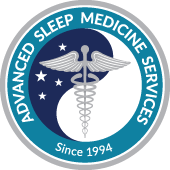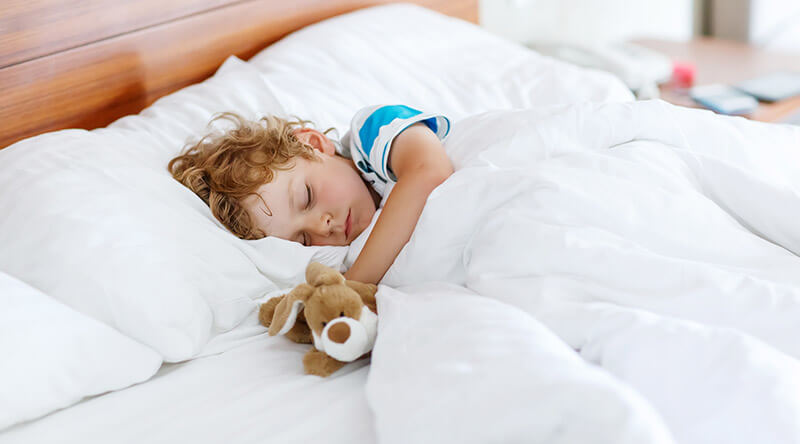Pediatric Studies
Children and Sleep
The sleep patterns of children are much different than the sleep patterns of adult men and women. As they grow, these patterns will change and evolve, but through it all, the importance of getting the right amount of sleep is constant.
Children Need a Lot of Sleep
While the recommended hours vary by age, one thing is certain: sleep is critical for a child’s growth and development. As babies, children spend most of their time sleeping (about 14-17 hours a day). By the time they are teenagers, they need about 8-10 hours of sleep. The chart below shows the National Sleep Foundation’s recommended sleep guidelines for children.
| Age Group | Recommended Sleep Time | May be Appropriate |
|---|---|---|
| Newborns (0-3 months) | 14-17 hours | 11-19 hours |
| Infants (4-11 months) | 12-15 hours | 10-18 hours |
| Toddlers (1-2 years) | 11-14 hours | 9-16 hours |
| Preschoolers (3-5 years) | 10-13 hours | 8-14 hours |
| School-aged kids (6-13 years) | 9-11 hours | 7-12 hours |
| Teenagers (14-17 years) | 8-10 hours | 7-11 hours |
Regardless of their age, it’s important that your child is getting all the sleep they need in a comfortable, quiet environment. This is because their circadian rhythms, or internal clocks, are often built around having naps in the middle of the day. One study[1] showed that all it takes is missing one nap to impact a toddler’s ability to react to and enjoy their surroundings. During this study, toddlers that skipped their nap showed more negative responses to their surroundings, as well as a decreased ability to respond to puzzles. Skipping these naps can even contribute to sleep deprivation.
Sleep Disorders in Children
Sleep disorders are actually quite common in children, and include:
- Night terrors (partial arousals from sleep accompanied by shouting or emotional outbursts)
- Sleep walking
- Nightmares
- and Bedwetting
Adolescent children can also experience something called delayed sleep-phase disorder. The most notable symptom of this disorder is a desire to go to bed very late, resulting in difficulty waking up in the morning. The good news is that, most of the time, children grow out of these conditions.
Sleep Apnea and Children
Children are not immune sleep apnea, though the causes and symptoms may differ from adults. In children, one of the most common causes of sleep apnea is oversized tonsils or adenoids. In these cases, sleep apnea can often be cured by a tonsillectomy.
If you’re concerned your child has sleep apnea or another undiagnosed sleep disorder, speak to one of our sleep specialists. We perform sleep studies on children over one year old at our sleep centers, including on weekends. Our dedicated technicians have experience working with children and administering sleep studies in a caring, comfortable environment. A parent or guardian will stay the night in the same room with the child.
Request a sleep study for your child
[1] Berger, Rebecca H. et al. “Acute sleep restriction effects on emotion responses in 30- to 36-month-old children.” University of Colorado, Boulder.


